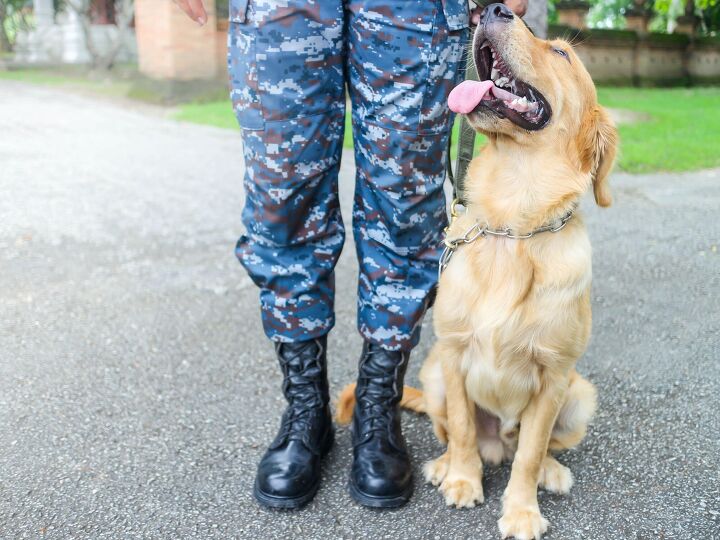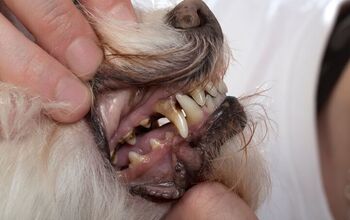A New Study Investigates How Service Dogs Can Help Veterans With PTSD

A new study led by researchers from the University of Arizona will examine the impact service dogs have on veterans with post-traumatic stress disorder (PTSD). With the increase in supportive roles dogs play in society, there’s a burning need for researchers to confirm how veterans with PTSD can benefit from partnering up with service dogs.
The Service Dog and Veteran Experiences Study is the first national randomized clinical trial that investigates the potential medical effects of service dogs on veterans with PTSD compared to usual medical care. This groundbreaking study is led by Marguerite O’Haire, associate dean of research and a professor at the Colledge of Veterinary Medicine, and Evan MacLean, associate professor at the college and the founder and director of Arizona Canine Cognition Center.
According to O’Haire, the supportive roles dogs have in society have come a long way from seeing-eye and hearing dogs and now include jobs in law enforcement, psychiatric, and medicinal care. As dogs take on more roles, researchers need to keep up and validate various uses of service and working dogs.
There is not enough evidence that support the use of service dogs in veterans with PTSD. This is particularly troubling, as it can create long waitlists causing some patients to wait up to five years to get partnered with a service dog.
Since insurance companies and medical providers don’t have evidence that supports the use of service dogs for veterans suffering from PTSD there’s a lack of resources and funding that supports the need for these animals.
‘We have heard many stories from veterans who have told us things like, ‘I would not be alive if I didn’t have my service dog’ and while those stories may be compelling, when it comes to things like medical insurance coverage, public access policy, and clinician recommendations - that all relies on data,” said O’Haire.
The SERVES study will last five years and survey eight groups of veterans. All veterans will have unrestricted access to traditional medical care, but only half will also receive a service dog. Researchers will evaluate a group paired with dogs and one without for 15 months at a time.
Participants need to wear special devices on their wrists to track sleep and activity levels, and dogs will be fitted with devices on their collars. These devices will allow researchers to track the proximity of the human and dog subjects to discover if spending more time together has an effect on the success of treatment.
Researchers will also regularly test the participant’s saliva and feces samples to track levels of stress hormone cortisol.
“We are trying to holistically capture the daily life of each individual, specifically their psychosocial functioning. We want to know if they are depressed or anxious, how many panic attacks or flashbacks they are having. We want to assess how they are doing socially. Are they getting out of the house into society? Are they going to school or work? Is this dog functionally impacting their lives?” said O’Haire for the University of Arizona News.
The goal of this study is to find evidence that supports the use of service animals and also serve as a starting point to improve the practice. According to O’Haire, organizations can learn how to raise and train service animals using scientific trials.
MacLean sees this study as a chance to determine what aspects of service dog partnership are the most important to veterans with PTSD.
“It would be great if every dog that every veteran got was the same, but they’re not. We can’t control that, but what we can do is quantify behavioral variations across dogs and assess whether there are particular dog characteristics linked to the greatest therapeutic gains,” said MacLean.

Nevena is a freelance writer and a proud mom of Teo, a 17-year-old poodle, and Bob, a rescued grey tabby cat. Since childhood, she had a habit of picking up strays and bringing them home (luckily, her parents didn't know how to say NO). When she's not writing for her fellow pet parents, Nevena can be found watching Teo sleep. To her defense, that's not as creepy as it sounds!
More by Nevena Nacic























